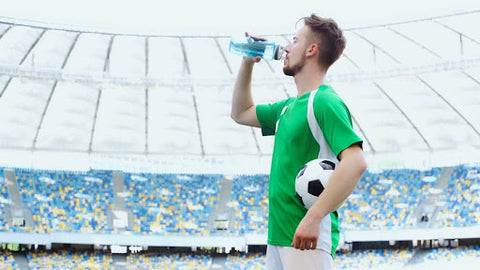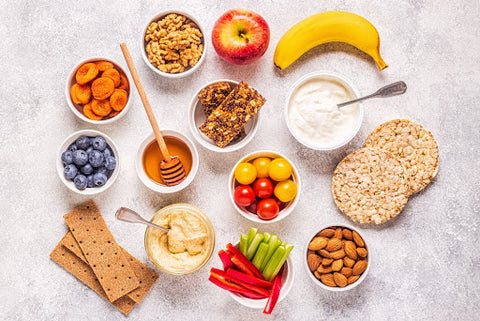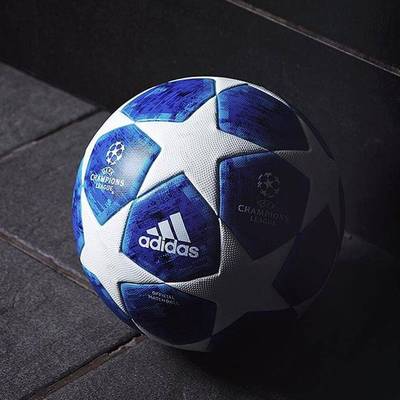FREE Shipping on $75 OR More. Some Exclusions May Apply.
FREE Shipping on $75 OR More. Some Exclusions May Apply.
Footwear
Apparel
Equipment

Soccer Nutrition: What to Eat Before a Game
March 15, 2024 5 min read
As we dive into the world of soccer nutrition, it's essential to understand how what we eat directly impacts our performance on the field. Soccer is not just a game of skill and strategy; it's also a test of endurance, speed, and strength.
This is where the concept of proper diet plays a pivotal role. Ensuring you're fueling your body with the right foods before a game can significantly enhance your energy levels, performance, and recovery.
So, let's explore the optimal pre-game diet for soccer players and why it matters.
The Importance of Nutrition in Soccer
Every sprint, tackle, and shot in soccer demands high energy levels and a sharp mind. The foundation of sustaining these attributes throughout a game lies in your diet.
A well-planned soccer diet boosts stamina, improves concentration, and speeds up recovery during halftime and after the game. It's not just about eating healthy; it's about eating smart.
By focusing on the right nutrients, you can ensure that your body has the fuel it needs to excel from the first whistle to the last.
Understanding Pre-Game Nutrition
The primary goals of pre-game nutrition are to maintain hydration, ensure a steady release of energy, and prevent any discomfort while playing. Timing is also crucial.
Eating too close to game time can lead to stomach discomfort while eating too early might leave you running on empty. Ideally, your last big meal should be 3 to 4 hours before kickoff, with a light snack or hydration option available up to 30 minutes before the game.
Macronutrients: The Energy Providers
Carbohydrates are your main fuel source. They're quickly converted into glucose, providing the energy needed for short bursts of speed and endurance. Whole grains, fruits, and vegetables are excellent sources of complex carbohydrates that ensure a steady energy supply.
Proteins, on the other hand, play a critical role in muscle repair. Including lean protein sources like chicken, fish, and legumes in your pre-game meal can help minimize muscle damage and aid recovery.
Fats should not be overlooked either. Healthy fats from avocados, nuts, and seeds provide a long-lasting energy source that's particularly useful in the later stages of a game.
Hydration: The Key to Peak Performance
We can't stress enough the importance of hydration for soccer players. Dehydration can severely impact your performance, causing fatigue, decreased coordination, and even cognitive decline.

To avoid this, start hydrating the day before a match and continue sipping water up to the game. A good rule of thumb is to drink about 16 to 20 ounces of water two to three hours before the game and another 8 ounces 30 minutes before.
The easiest way to stay hydrated is by bringing your water bottle to the match.
Pre-Game Meal Ideas
As we've emphasized, soccer nutrition is the cornerstone of achieving and sustaining peak performance on the field. But it's not just about what you eat; it's also about when and how you eat.
Integrating the right balance of macronutrients and staying hydrated are fundamental, yet understanding your body's signals and adapting your diet accordingly can make all the difference.
For instance, during warmer seasons or in more humid climates, increasing your fluid intake becomes even more crucial to counteract the faster rates of dehydration.
Moreover, incorporating mindfulness into your eating habits - paying attention to how different foods affect your energy and performance - can offer insights into optimizing your pre-game nutrition.
This personalized approach ensures that your soccer diet isn't just a one-size-fits-all plan but a tailored strategy that elevates your game, boosts your endurance, and supports your recovery.
Remember, fine-tuning your nutrition based on personal experience and professional advice can lead to significant improvements in your performance.
Let soccer nutrition be the foundation upon which you build your athletic achievements, transforming good players into great ones.
Snacks: Quick Energy Sources
In the final hours before a game, you might find yourself needing a last-minute energy boost. This is where smart snacking comes into play. Opt for snacks that are rich in carbohydrates but low in fat and fiber to ensure they're easily digestible and won't sit heavy in your stomach.

Bananas, energy bars (preferably ones with a good balance of nutrients), or a small serving of dried fruit are excellent choices. These snacks can provide that quick surge of glucose your body needs for the game without causing any gastrointestinal discomfort.
Foods to Avoid Before a Game
Not all foods serve your body well, especially in the hours leading up to intense physical activity. To avoid potential setbacks, avoid high-fat foods, excessive sugary snacks, and caffeine right before the game.
Foods heavy in fats can slow down digestion, leaving you feeling sluggish, while a high intake of sugar can lead to a quick spike in energy followed by a sharp drop, which is the last thing you need.
Caffeine, although it can increase alertness, might also lead to dehydration or jitteriness, impacting your performance and focus on the field.
Tailoring Nutrition to Individual Needs
A crucial aspect of soccer nutrition is understanding and respecting your body's unique needs. Dietary restrictions, allergies, and personal preferences play a significant role in designing a diet that works for you.
It's essential to experiment with different foods and meal timings during training to discover what enhances your performance without causing discomfort.
Consulting with a sports nutritionist can provide tailored advice, ensuring your diet aligns with your energy needs and health requirements.
Conclusion
In conclusion, mastering soccer nutrition is key to unlocking your full potential on the field. By focusing on the right mix of carbohydrates, proteins, and fats, staying hydrated, and choosing snacks wisely, you can ensure your body is primed for peak performance.
Avoid foods that might hinder your abilities and tailor your diet to suit your needs.
As we've explored, the diet of soccer players is a critical aspect of their overall strategy for success. Implementing these nutrition tips can significantly impact your energy levels, performance, and recovery.
Proper nutrition should always be considered. It's as integral to your game as practice drills and strategy sessions. Start prioritizing your nutrition today, and you may just find yourself playing better than ever.
For those seeking personalized guidance, don't hesitate to reach out to a sports nutritionist who can help you navigate the nuances of an effective soccer diet. Let's make this your secret weapon for success on the field.
But, nutrition is only part of the job, the other part is quality soccer equipment. If you’re looking for anything and everything soccer-related, Goal Kick Soccer has you covered.
Browse our shop and find the best high-quality soccer gear around, at affordable prices and rates. Shop now!


